20 Unhealthy Foods You Should Eliminate From Your Diet, According To Nutritionists
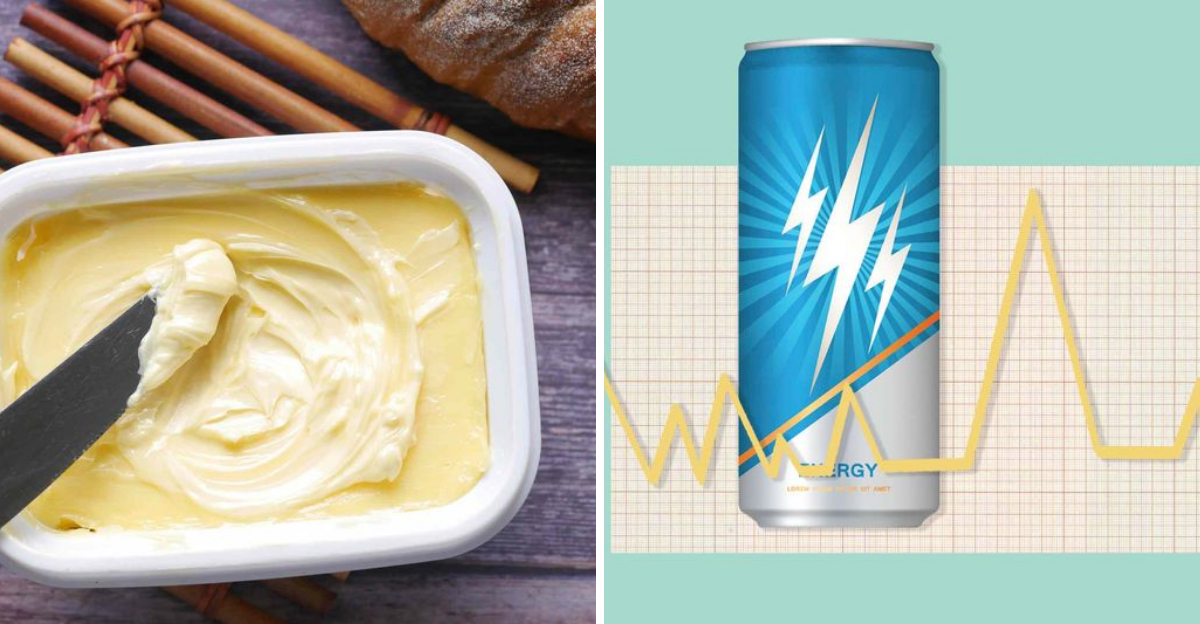
In a world where convenience often trumps nutrition, many of us unknowingly consume foods that are detrimental to our health. This article explores twenty foods nutritionists suggest we eliminate from our diets to improve overall well-being. These items, often laden with sugars, unhealthy fats, and artificial ingredients, can contribute to various health issues. By recognizing and removing these culprits, we can pave the way for a healthier lifestyle. From sugary breakfast cereals to margarine, here’s a detailed look at what to avoid and why.
1. Sugary Breakfast Cereals
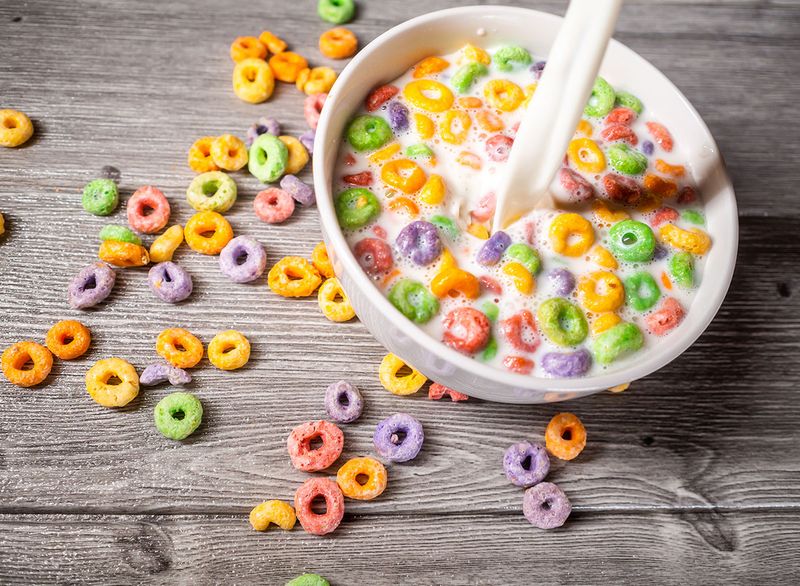
Colorful, enticing, but deceptive. Sugary breakfast cereals are often a morning staple, yet they pack more sugar than some desserts. These cereals can cause an early blood sugar spike, leading to a crash before noon. Their artificial colors and flavors are designed to attract but have little nutritional value.
Nutritionists caution against them, pointing to how they undermine energy levels and contribute to obesity. Switch to whole grain or oatmeal options for a healthier start. The difference in energy and nutrient absorption is palpable. Breakfast should fuel you, not fool you.
2. Processed Meats
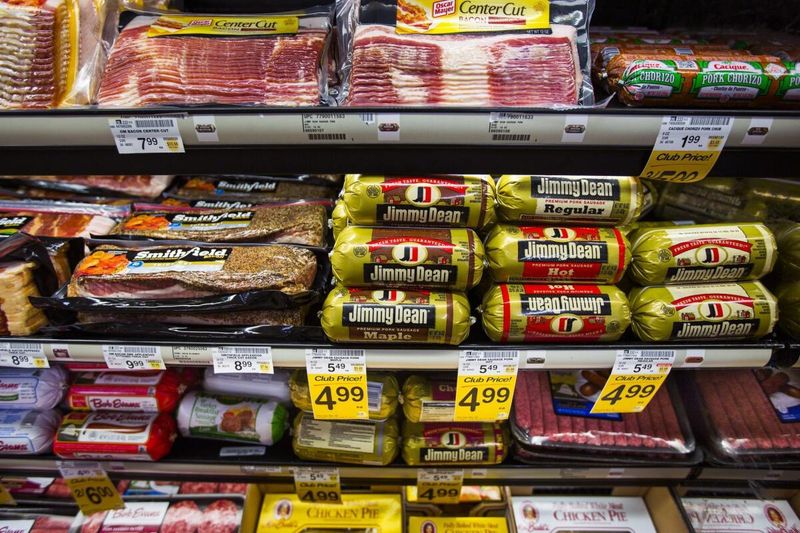
Processed meats like bacon and hot dogs are often enjoyed for their convenience and flavor. However, they come with a hefty health price. Laden with sodium and preservatives, these meats are linked to increased cancer risk and heart disease.
Nutritionists emphasize the importance of moderation and choosing fresh, lean meats instead. The chemicals used to preserve these meats can wreak havoc on our bodies over time. Opting for fresh alternatives can reduce exposure to these harmful additives. A small change with a significant impact.
3. Trans Fats

Trans fats, often hidden in packaged snacks, are a heart’s adversary. These partially hydrogenated oils raise bad cholesterol levels while lowering the good—a recipe for cardiovascular disaster.
Nutritionists strongly advise reading labels and avoiding foods with trans fats. Awareness can prevent heart disease and promote better health outcomes. Many countries have taken steps to ban these fats, yet vigilance is still necessary. Choose snacks wisely and prioritize heart health over convenience. A little effort goes a long way.
4. Store-Bought Frosting
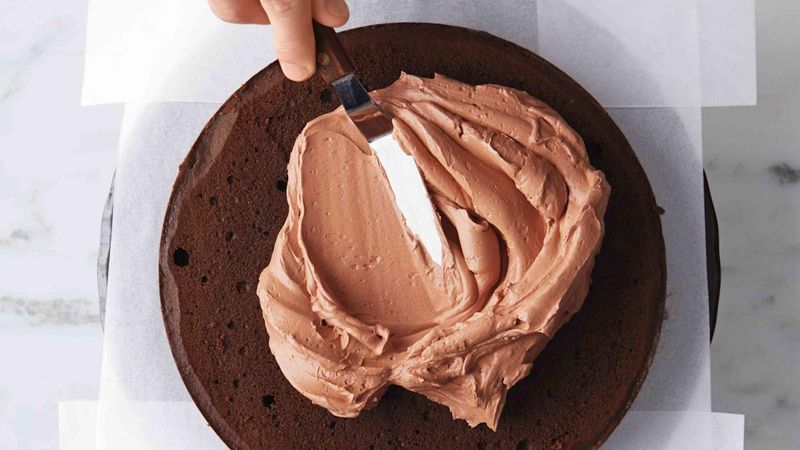
That sweet, creamy delight atop cakes and cupcakes? It’s a concoction of sugar, trans fats, and artificial flavors. Store-bought frosting is a quick way to dress up desserts but contributes to unhealthy eating habits.
Nutritionists suggest making frosting at home using natural ingredients. This allows control over sugar levels and eliminates harmful trans fats. Homemade alternatives are just as delicious without the negative health effects. Plus, the satisfaction of knowing exactly what’s in your treat is unmatched.
5. Microwave Popcorn with Artificial Butter

The convenience of microwave popcorn is undeniable, but the hidden dangers are concerning. Often coated in trans fats and artificial butter flavoring, these snacks can irritate lungs and digestive systems.
Nutritionists advocate for air-popped popcorn with real butter or olive oil. This change ensures a delicious snack without the health compromises. Switching to homemade popcorn can make movie nights both tasty and healthy. It’s a small tweak with big benefits.
6. Fried Fast Food

Fast food’s crispy charm belies its unhealthy nature. Fried in trans fats and inflammatory oils, it offers a calorie-dense meal devoid of nutritional value. These foods contribute to weight gain and inflammation.
Nutritionists recommend limiting fast food intake and opting for grilled or baked options instead. Cooking at home allows control over ingredients and methods. Though convenient, fast food often costs more than we realize—in health. Choose wisely to feel better.
7. Refined White Bread
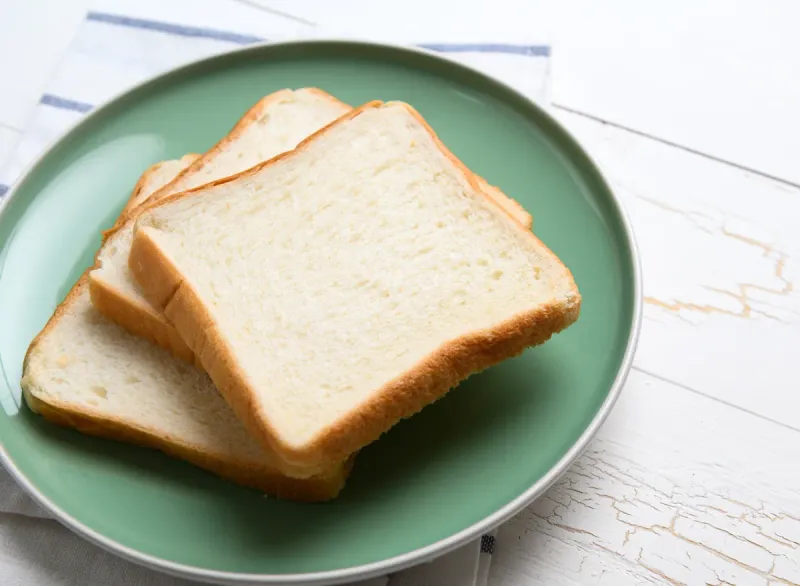
White bread, a pantry classic, is stripped of its fiber and nutrients. While soft and easy to eat, it spikes blood sugar levels quickly, leading to energy crashes. This refined product lacks the whole grain benefits crucial to our diet.
Nutritionists advocate for whole grain or sprouted bread varieties. These options provide longer-lasting energy and essential nutrients. Making the switch can improve digestion and overall health. Bread should nourish, not just fill.
8. Flavored Yogurts
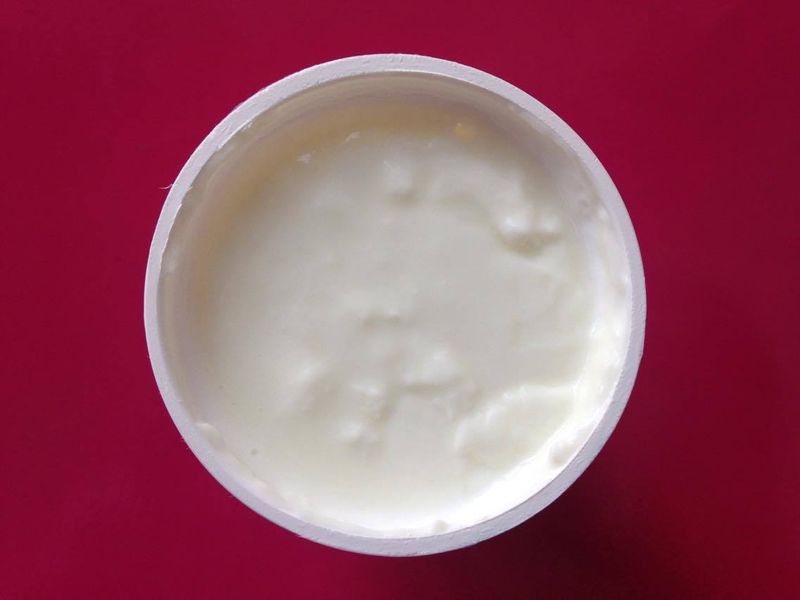
Flavored yogurts present themselves as a healthy choice but often carry more sugar than a candy bar. These sugary concoctions can derail diets while pretending to be nutritious.
Nutritionists suggest opting for plain yogurt and adding fresh fruits. This approach controls sugar intake and enhances health benefits. Enjoy the creamy texture without the sugar spikes. Yogurt should be a probiotic ally, not a sugar trap.
9. Energy Drinks
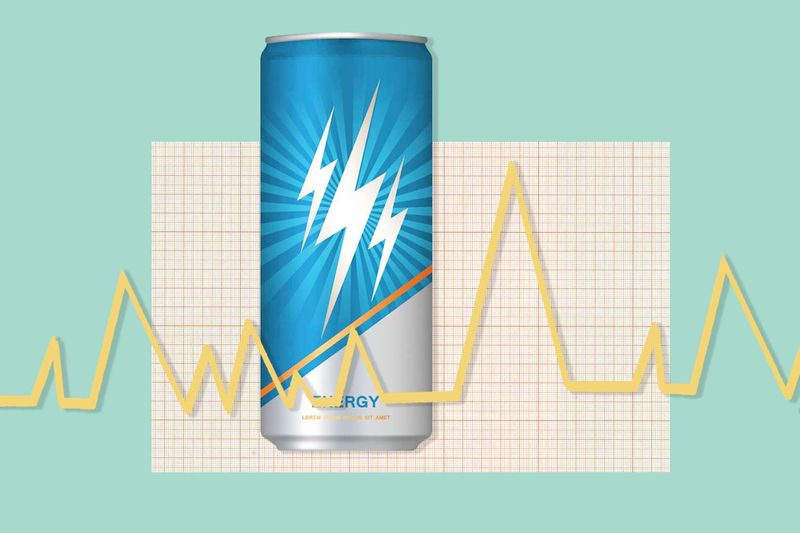
Energy drinks promise vitality but deliver a jittery mix of caffeine, sugar, and artificial ingredients. These drinks can lead to heart palpitations and metabolic imbalances.
Nutritionists warn against regular consumption and advise finding energy boosts through balanced diets and proper hydration. Natural energy sources support sustained health without the crash. The choice is clear: real energy over artificial stimulation.
10. Candy Bars
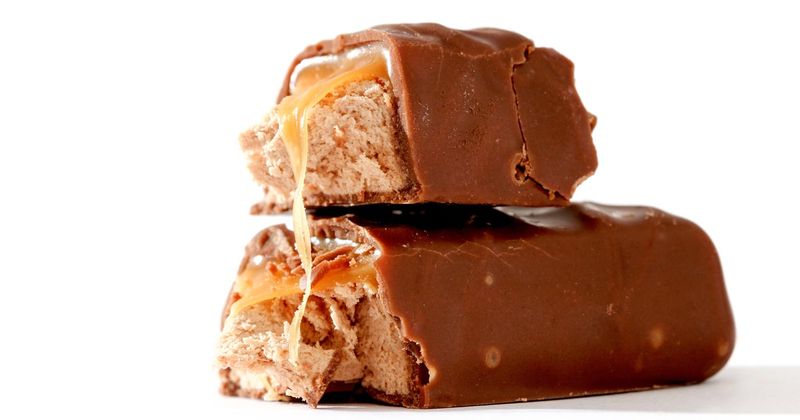
Candy bars, a sweet indulgence, are packed with sugar, artificial flavors, and cheap fats. While they satisfy cravings momentarily, they lead to energy slumps and unhealthy weight gain.
Nutritionists recommend choosing fruits or nuts as alternatives. These options provide natural sweetness and essential nutrients without the sugar crash. Candy bars are more trick than treat when it comes to health. Opt for nature’s candy instead.
11. Packaged Snack Cakes
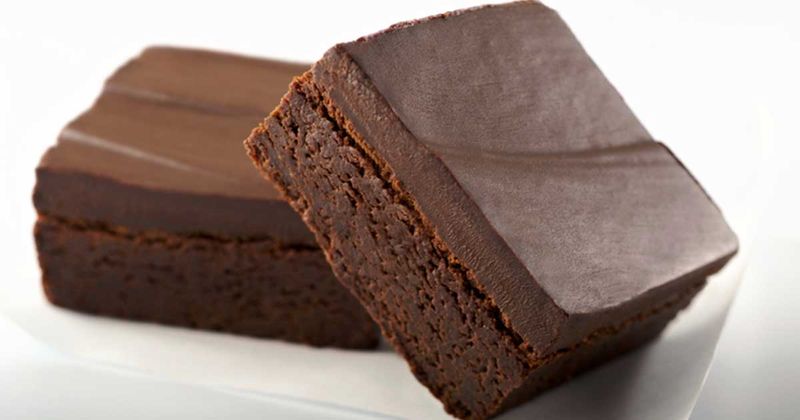
Packaged snack cakes like Twinkies are more about preservatives than nutrition. These treats are filled with empty calories that neither satisfy hunger nor provide nourishment.
Nutritionists advise treating these as rare indulgences or avoiding them altogether. Homemade cakes offer control over ingredients and nutrition. Snack cakes are a quick, sugary fix with lasting negative effects. Real ingredients yield real health benefits.
12. Frozen Dinners
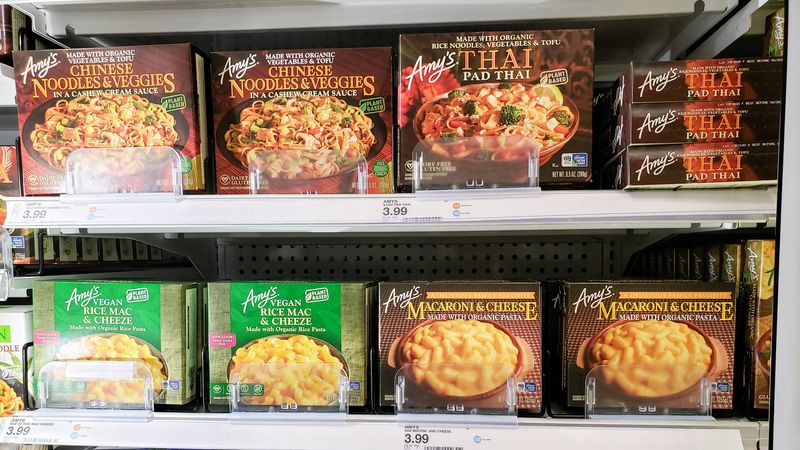
Convenient and quick, frozen dinners often contain high levels of sodium and preservatives. These meals offer convenience at the cost of real nutrition.
Nutritionists suggest preparing fresh meals at home to control salt and ingredient quality. Homemade dishes ensure balanced nutrition and flavor. While frozen dinners save time, they don’t save health. Fresh is best for nourishment.
13. Bottled Smoothies
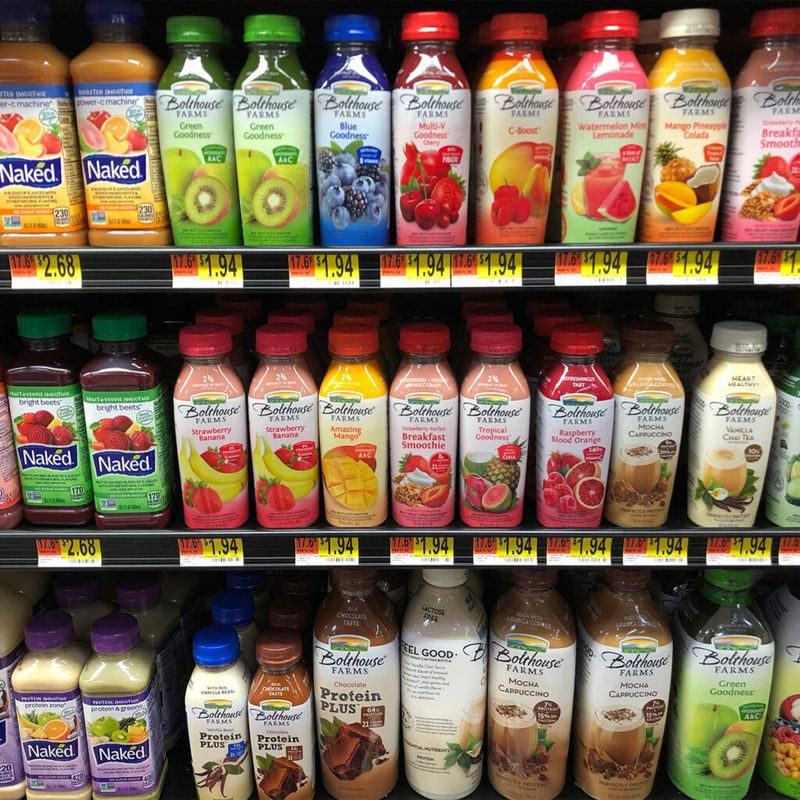
Bottled smoothies seem like a healthy choice, yet they’re often laden with fruit concentrates and added sugars. These drinks can mislead consumers into ingesting as much sugar as soda offers.
Nutritionists recommend making smoothies at home using fresh fruits and vegetables. This method retains natural fiber and nutrients, offering real health benefits. Bottled smoothies can be more hype than health. Home blending is a better choice.
14. Instant Noodles
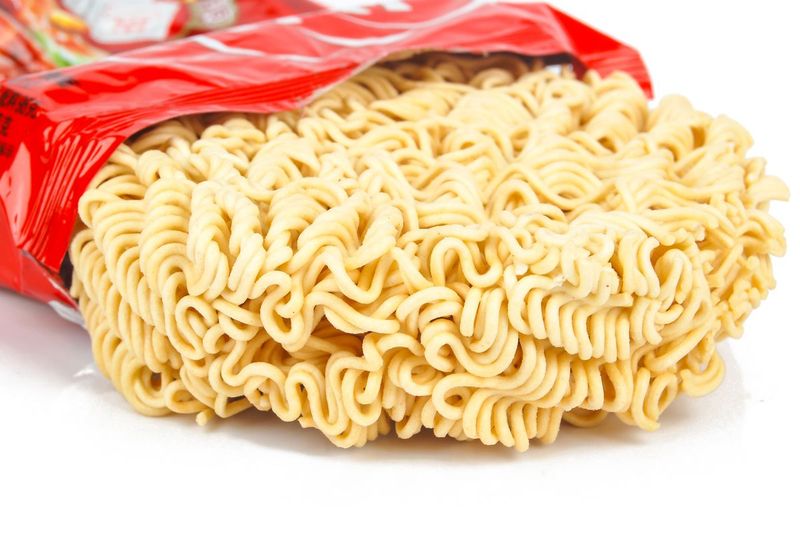
Instant noodles are a quick fix but carry low nutritional value, high sodium, and inflammatory oils. They fill stomachs but don’t sustain health.
Nutritionists highlight the importance of occasional indulgence and choosing alternatives like whole grain pasta. Homemade broths add nutrients and flavor without health risks. Instant noodles are an easy choice with complex consequences. Seeking wholesome meals can uplift well-being.
15. Sweetened Nut Butters
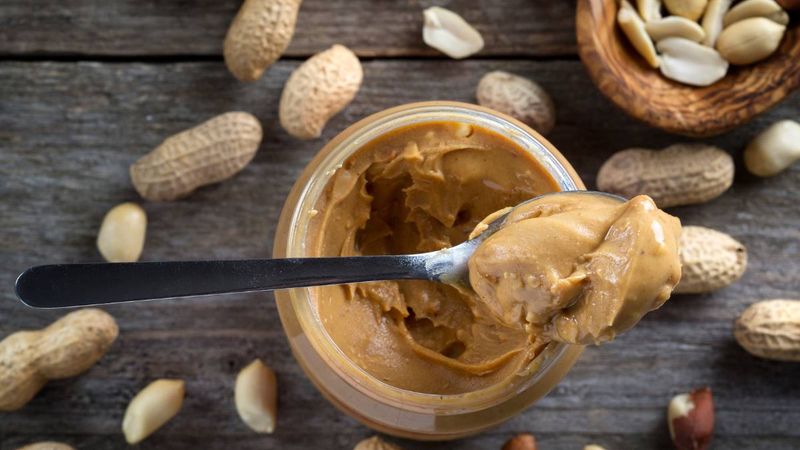
Nut butters are nutritious until sugar and hydrogenated oils are added. These additives turn a healthy snack into a sugary spread that harms more than helps.
Nutritionists advise choosing natural nut butters free from additives. This choice preserves health benefits and flavor. Sweetened versions are more of a setback than a treat. Natural is always a sweeter deal for your health.
16. Store-Bought Muffins
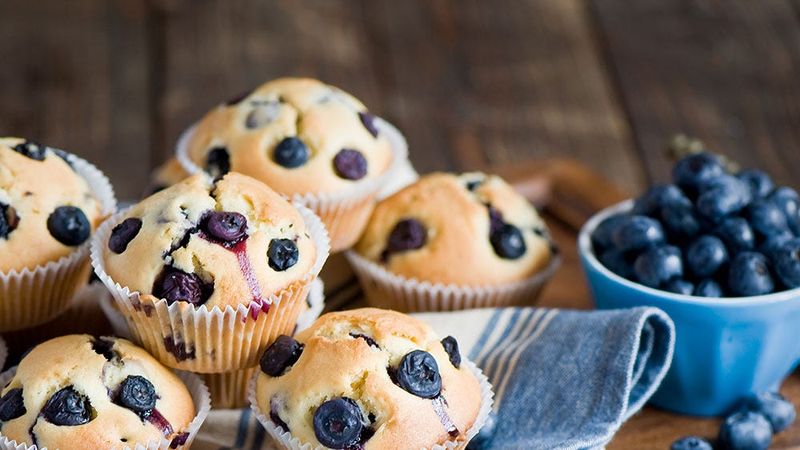
Store-bought muffins, often disguised as a breakfast option, are more akin to cupcakes. High sugar content transforms them into energy-sapping sugar bombs.
Nutritionists recommend baking at home or choosing whole grain varieties. This ensures control over sugar and ingredient quality. Muffins should energize, not cause sugar crashes. Homemade treats are always a healthier choice.
17. Flavored Coffee Creamers
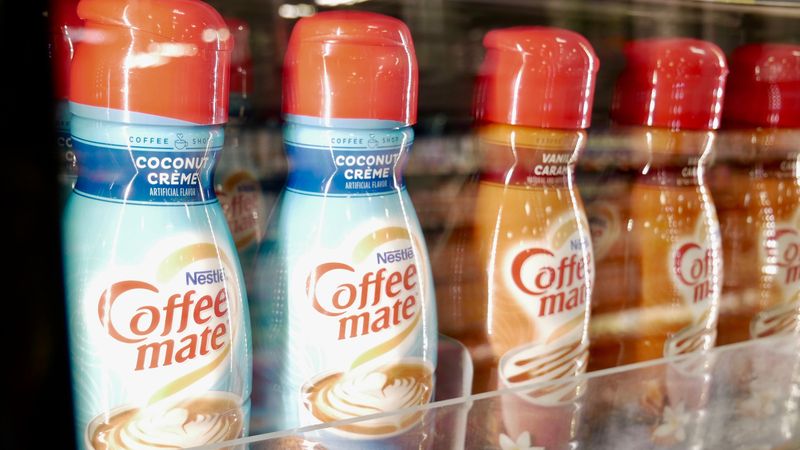
Flavored coffee creamers add sweetness, but they come with artificial flavors and sugars. These additives can overshadow the coffee’s natural aroma.
Nutritionists propose using a splash of milk or unsweetened nut milk. This simple swap enhances coffee without the guilt. Creamers are more of an indulgence than necessity. Keeping it simple means keeping it healthy.
18. Canned Pasta Meals
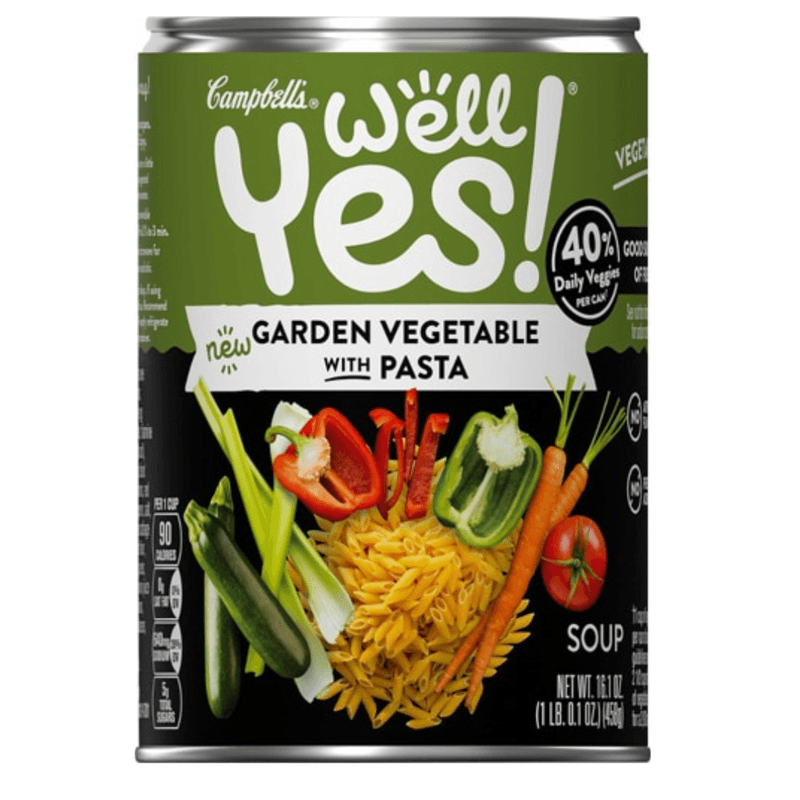
Canned pasta meals like SpaghettiOs are convenient but often processed with added sugars and sodium. These meals lack protein and fiber, crucial for a balanced diet.
Nutritionists recommend making pasta from scratch to ensure nutritional quality. Fresh ingredients offer better taste and health benefits. Canned meals are more a convenience than a nourishing option. Freshly made is the way to go.
19. Margarine
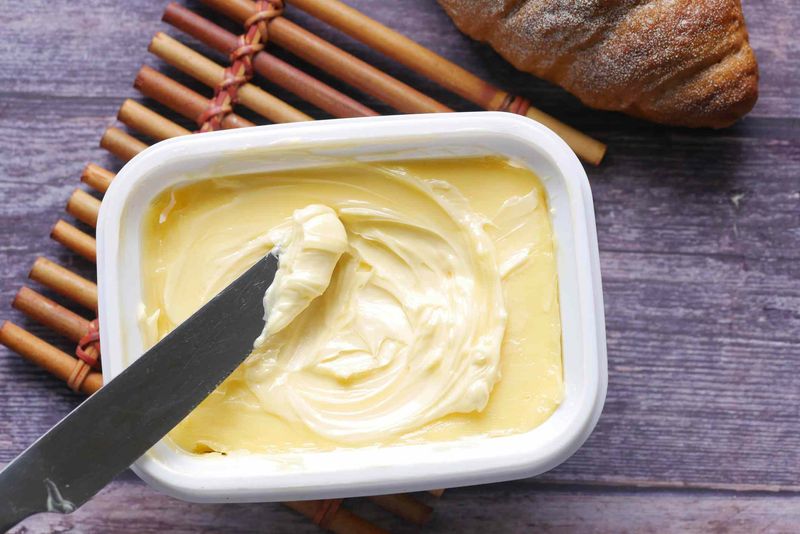
Margarine, especially in stick form, often contains hydrogenated oils and artificial flavors. These ingredients do more harm than good to heart health.
Nutritionists encourage using small amounts of real butter or olive oil. These natural fats provide flavor and are less harmful. Margarine is more about imitation than nutrition. Opt for real and reap the health rewards.
20. Sugary Coffee Drinks
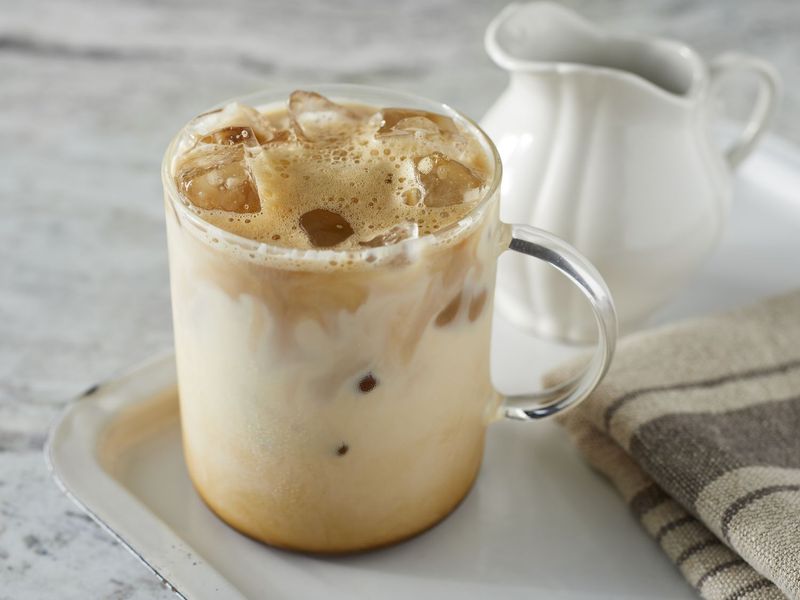
In the morning rush, a sugary coffee drink might seem like a comforting choice, but it’s a sugar trap. These beverages can contain up to 50 grams of sugar, contributing to weight gain and increasing the risk of diabetes.
The combination of sugar and caffeine can lead to energy spikes followed by crashes, leaving you feeling more tired later. Excessive sugar intake is also linked to heart disease and other chronic conditions.
Opt for black coffee or drinks with natural sweeteners instead. Did you know? Some popular coffee chains serve drinks with more sugar than a soda.
